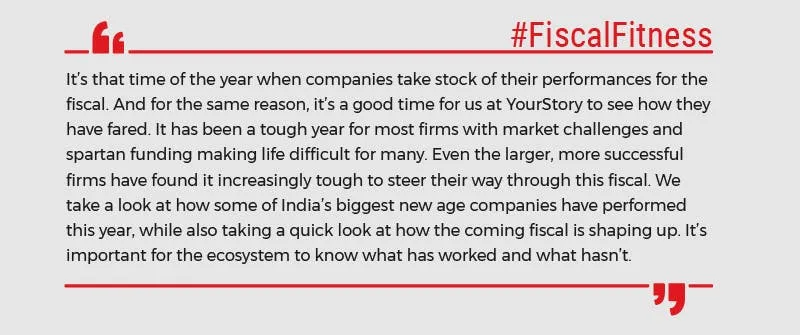The year of foodtech - What was FY2018 like for Swiggy

From not finding favour with investors to becoming hot property, this year marked the resurrection of foodtech in the Indian startup ecosystem. With two major funding rounds, acquisitions and even a controversy thrown in, FY 2017-18 has been a busy year for Swiggy.
When you’ve survived a gruesome battle, you have the advantage like none other. The foodtech bloodbath of 2016 is a well-known story in the Indian startup ecosystem, as are its survivors.
Strapped for funds, and with the challenges of managing different geographies and operations, many foodtech startups like TinyOwl, Spoonjoy and Dazo shut down in 2016. Built on the foundation that they solved one of the basic problems of roti, kapda aur makaan, and would never go out of favour, many faced an early death.
Only the big two – Swiggy and Zomato – survived.
With the battle behind it, this financial year, Swiggy pushed its efforts towards growth and expansion. In 2016-17, the company posted a revenue of Rs 133.1 crore and losses of Rs 205.2 crore. In the previous year, the Bengaluru-based foodtech startup had seen a revenue of Rs 23.6 crore and losses of Rs 137.2 crore.

Grabbing a bigger market share
When Swiggy started operations in August 2014, its main proposition was to deliver food from not only high-end restaurants, but also pocket-friendly joints, and everything in between.
The next eight months saw it raise $2 million in funding from Accel and SAIF Partners. In May 2017, Swiggy roped in media conglomerate Naspers, and raised $80 million in a Series E round. In the fiscal year, Swiggy grabbed $100 million in Series F funding from Naspers and Meituan-Diaping, taking the total funding raised to over $255 million for a valuation of $650 million.
Early stage investor and startup mentor Sanjay Anandaram believes the online food businesses today are essentially focused on delivery, online kitchen, and a combination of both.
“While online kitchen businesses will raise money and continue to grow, the real battle and fight will be between players like Zomato and Swiggy,” Sanjay says.
What helped it grow
Over the years, the one thing that has helped Swiggy survive and up its game is the fact that it stuck to its core premise - “We aim to change the way India eats.” It was this idea that got Swiggy to launch its own cloud kitchen - ‘The Bowl Company,’ starting operations in Koramangala, Bengaluru, before expanding to different parts of the city.
This year, Swiggy courted controversy when a Tumblr blog post titled, “Swiggy, a house of cards,” co-authored by four current and ex-employees in the sales team, alleged the Naspers-backed food delivery startup has been following unethical practices.
The accusations ranged from cheating restaurant partners, cheating investors, to a bad work culture and a management that is tough to deal with. Sriharsha Majety, Co-founder and CEO, Swiggy had promptly rubbished the accusations in a media statement and said:
“The article carries inaccurate facts regarding business and order numbers. It not only references employee departures from a year-and-a-half back, but also presents details on our partners out of context and with mischievous intent.”
The fight was that of margins.
Being different and yet predicable
The controversy didn’t stop Swiggy. The company this year launched Swiggy Access, where Swiggy brings a variety of food to consumers by enabling plug-and-play expansion for restaurant partners in different areas.
At the launch Harsha had said:
“We do our basic service really well. We are boringly predictable. Our hope is there should be no touch points between a customer and us beyond them placing the order on the app and us handing over the food to them. It is a challenging business and we were able to get the basic service right through a mix of technology and operational excellence. One of the big contributors was having our own fleet. We had five riders when we started; we have crossed 20,000 riders now. We have India’s largest last-mile delivery fleet.”
Today, Swiggy accounts for 25 percent of the total funding raised by foodtech startups between 2015 and 2018. This year, Swiggy also acquihired gourmet Asian food startup 48East.
So far this year, a total of $300 million has been was invested in the foodtech sector. The overall food market in India is believed to be worth $193 billion, and is poised to cross $540 billion in the next three years. From Swiggy’s aggressive acquisition, funding and growth push, it is clear it intends to keep a strong hold on its large market share.







